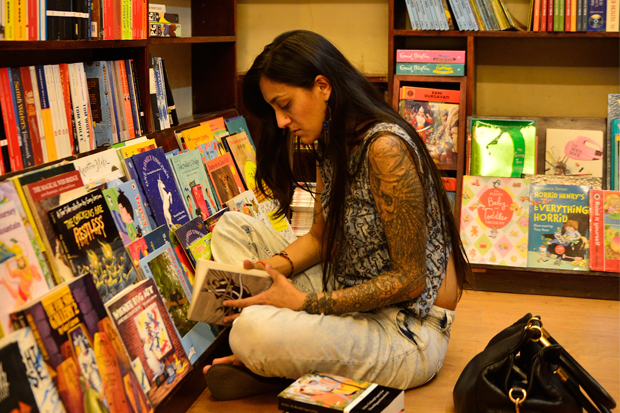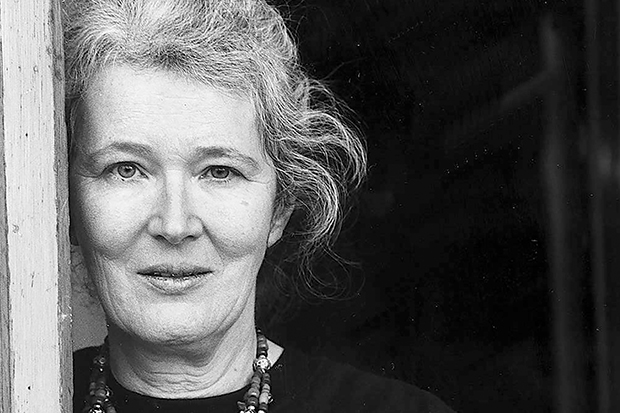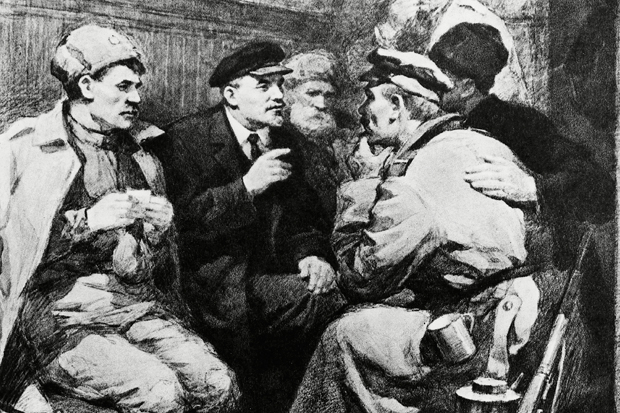It is not uncommon for writers to be obsessed by bookshops. Some even find their writing feet through loving a particular bookshop and developing a habit, which helps to form the writers they become. And often they end up in a rage with the common run of bookshops. Why would they not? It is, or used to be, a numbers game, and most bookshops fail to stock most writers.
But in recent years online outlets such as Amazon have changed the stocking (and the hating) game. Since proper bookshops became an endangered species, a use-them-or-lose-them energy pervades the bookish classes. It is a form of virtue signalling to go to your local, if you have one, order in what they haven’t got and pay more than you would online.
The 16 writers collected here tell stories about bookshops known and loved throughout the world. They seem to have made a vow of silence concerning Amazon in relation to new books, and they barely acknowledge the internet revolution in sourcing secondhand books. Ali Smith, who in her fiction deftly mixes digital digressions with the domestic minutiae of the writing life, settles for a loving retrospect of Leaky’s shop in Inverness, which opened when she was a story-mad schoolgirl and now has one of the largest collections of secondhand books in Scotland. This happy story generates none of Smith’s usual gleeful acrobatics with Google tracks in the brain. She mentions an online Alert Me form, but moves on quickly — as though to acknowledge the internet middlemen is to risk undermining the very thing it is the business of Browse to praise: the material bookshop stuffed to the rafters with material books which you didn’t know you wanted until you saw them.
Except, sometimes, you do know what you want and then explicit refusenikery about the web turns to whimsy. Andrey Kurkov, in a piece about the Chernivtsi bookshop in south-west Ukraine, waxes coy about his longing to repossess a volume of little known Lithuanian poetry, which he is loath to look for online:
Kukutis was not remotely contemporary. The tales he told were of the first world war… of his love for the hunchbacked daughter of a miller. Seeking ‘access’ to the world of Kukutis and his author via the internet felt like sacrilege.
However, the brief history of the Cernivtsi bookshop is a brilliant bit of micro history which uses starving Ukrainians selling off their domestic libraries to show how ‘the bookshops of the former Soviet Union became European-style secondhand bookshops and Ukraine itself became a secondhand country.’
Pankaj Mishra manages to pack even more into his essay about the Fact and Fiction bookshop in New Delhi, in which the poor student — Mishra — becomes a successful writer guilty about his kindle habit, while the curating bookseller — Ajit Vikram Singh — sinks from a demanding discontent into an accusing gloom. All this against a backdrop of the liberalisation of the Indian economy and the rise of a philistine Hindu nationalism. Fact and Fiction opened in the early 1980s and closed in 2015. ‘Ajit called it a mercy killing in one of the many articles that appeared.’
Mishra’s essay stands out for its combination of confession and reportage. He is in the frame, but so is Ajit — we know that Mishra hasn’t made him up. This is not always the case; sometimes a note of magic realism hovers. ‘She was about 49 then, and she’s about 49 now’ writes Kurkov of his bookseller. And here is Iain Sinclair on the fabled book-runner Driffield, a ‘conservative anarchist’, a ‘self-promoting invisible’ and ‘a man who once failed with a free bookshop in Notting Hill, where customers viewed his stock with extreme suspicion. Driffield was a disappearance waiting to happen.’
Perhaps sometimes it is the booksellers who hate writers, rather than the other way round. Dorthe Nors, a Danish writer, describes a bookseller in Copenhagen who didn’t take kindly to Nors’s determination to change the position of her newly published short stories from spine-on to face-out. It seems not to occur to Nors that anyone, reading this, might be on the bookseller’s side.
I certainly was, but that may be because once upon a time I too had a shop, a circular kiosk in an Oxford side-street. I loved it fiercely but was hounded out by halfwit management who thought the path to profit was to stock more rubbish. It wasn’t; the bookshop failed anyway. Since then I have nursed a retirement dream: a bookshop with an ace caff attached, to which publishers send a complimentary copy of everything published in the hope that some titles would make the journey from tables to shelves. The discerning punter would know to come, the scowling bookseller would be freed of the obligation to sell, publishers could rest easy that their books were available to view, and the fittest might survive. Everything would be turned on its head and civilisation saved. Backers welcome.
The post The magic of bookshops appeared first on The Spectator.
Got something to add? Join the discussion and comment below.
Get 10 issues for just $10
Subscribe to The Spectator Australia today for the next 10 magazine issues, plus full online access, for just $10.
You might disagree with half of it, but you’ll enjoy reading all of it. Try your first month for free, then just $2 a week for the remainder of your first year.














Comments
Don't miss out
Join the conversation with other Spectator Australia readers. Subscribe to leave a comment.
SUBSCRIBEAlready a subscriber? Log in